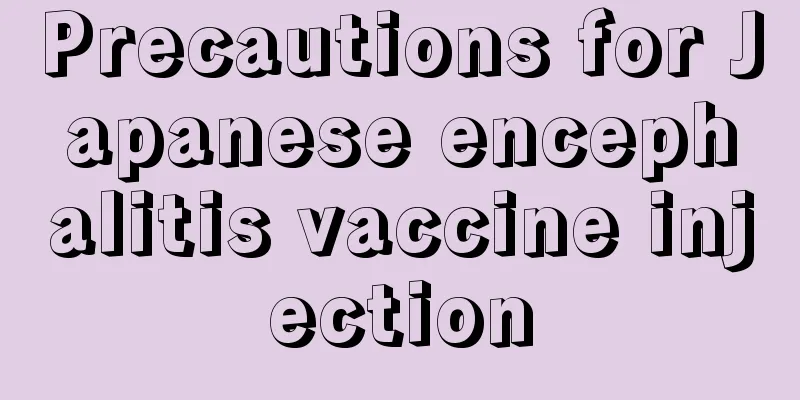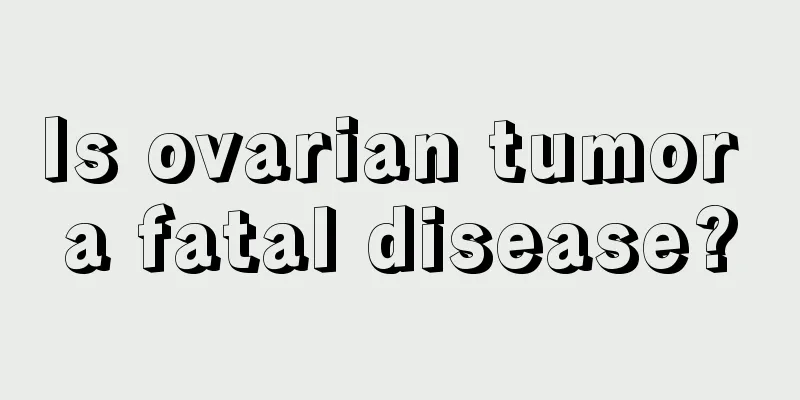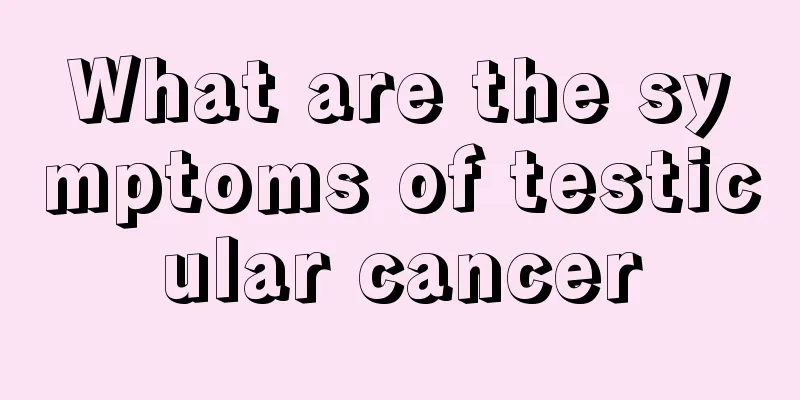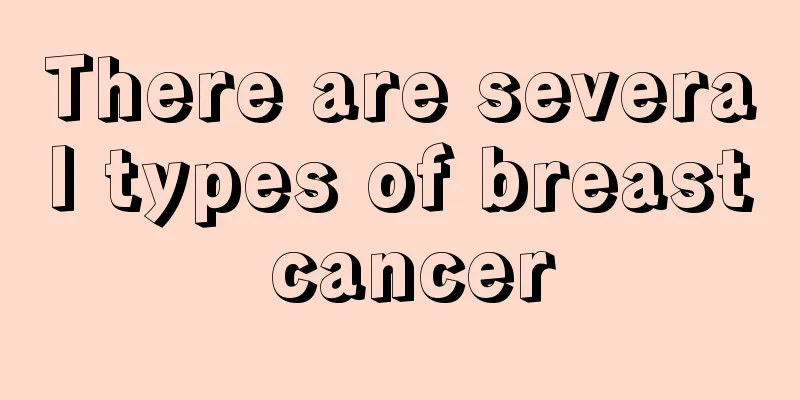Precautions for Japanese encephalitis vaccine injection

|
Everyone has heard of Japanese encephalitis! Japanese encephalitis (JE) is an acute infectious disease transmitted by the JE virus through mosquitoes and is prevalent among humans and animals. The Japanese encephalitis vaccine is a vaccine for preventing Japanese encephalitis and will have obvious effects. So what should we pay attention to when injecting Japanese encephalitis vaccine? Most people do not react to the Japanese encephalitis vaccine. Only a few children experience local redness, swelling and pain after the injection, which disappears within 1 to 2 days. Fever is rare and is generally below 38°C. A few people have subjective symptoms such as dizziness, headache, and discomfort. Occasionally, the incidence of skin rash, angioedema and anaphylactic shock increases with the number of vaccinations. It usually occurs 10 to 30 minutes after injection and rarely lasts more than 24 hours. This type of vaccination reaction is more common in subjects who receive repeated booster injections, especially in children over 7 years old. People who use Japanese encephalitis vaccine should pay attention to fever and acute diseases; serious chronic diseases; brain and nervous system diseases; allergic diseases, and use with caution if you have a history of allergies to antibiotics or vaccines. Other things to note ⑴ Vaccines that are turbid, discolored (yellowed), or have cracks or foreign matter in the ampoule should not be used. ⑵ To reduce the pain during injection, add an appropriate amount of sodium bisulfite to the vaccine. When the vaccine changes from orange to yellow, it can be injected. ⑶ Rest for a while on site after vaccination to prevent side effects. ⑷ 1:1000 epinephrine should be available for emergency use in case of occasional shock. ⑸ Most areas of my country are endemic for Japanese encephalitis, and the latent infection rate among the population is very high. People over 10 years old have generally acquired immunity due to latent infection, so there is no need to vaccinate again. Everyone should be clear about the precautions of Japanese encephalitis vaccine! Therefore, when getting vaccinated in the future, you should consider your own physical factors and do not get vaccinated blindly. If you are not clear about your physical condition, it is recommended that you go to the hospital for a physical examination and take measures after determining your physical factors. Japanese encephalitis vaccine has a preventive effect on Japanese encephalitis, and vaccination is more likely to reduce the incidence of Japanese encephalitis. |
<<: Methods for repairing suture scars
>>: What is the absolute value of neutrophils
Recommend
What are the methods for correcting incisors
If the front teeth are not arranged neatly, or th...
Bathing regimen for cleansing and fitness
Taking a bath is also called bathing. In China, b...
What are the drugs for treating rectal cancer
Cancer is a word that people now feel panic when ...
Is microdermabrasion effective for scar removal
If there are scars on the body, it will indeed ha...
Steps to burn the tooth nerve
Toothache is not a serious disease, but many peop...
Can benign bone tumors be left untreated?
Tumors are an increasingly common disease in our ...
Which department of dentistry should I go to for wisdom tooth extraction
Wisdom teeth are a dental problem that has plague...
What is causing the pain in the right side of my abdomen?
Everyone should take abdominal pain on the right ...
What are the symptoms of digestive tract stenosis
It is more serious for patients with gastrointest...
Is it OK to drink beer if you have high blood pressure?
Hypertension is a disease that middle-aged and el...
Why is glioma prone to recurrence
Glioma is a very malignant tumor. 20% of patients...
How much do you know about egg-laying mammals?
Animals are human’s best friends and are deeply l...
How to peel garlic in 3 seconds
Garlic is a very important condiment in life. Alt...
Treatment of cervical cancer according to clinical staging
For patients with stage I and stage II cervical c...
Symptoms of neuralgia
In many cases, people will definitely experience ...









